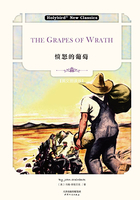Samuel Johnson
心灵寄语
要想克服懒惰,就要对自己有所管束。想睡懒觉时,应想想有人已经闻鸡起舞;在要放纵时,可看看他人正在悬梁刺股;多一点对自己的约束,就多一点的成功的机会;多一点对自己的管束,明天就多一缕阳光。
There are some that profess1 idleness in its full dignity, who call themselves“the idle”,who boast that they do nothing, and thank their stars that they have nothing to do;who sleep every night till they can sleep no longer, and rise only that exercise may enable them to sleep again;who prolong the reign2 of darkness by double curtains, and never see the sun but to“tell him how they hate his beams”;whose whole labor is to vary the postures3 of indulgence4,and whose day differs from their night but as a couch or chair differs from a bed.
These are the true and open votaries5 of Idleness, for whom she weaves the garlands6 of poppies7,and into whose cup she pours the waters of oblivion8;who exist in a state of unruffled9 stupidity, forgetting and forgotten;who have long ceased to live, and at whose death the survivors can only say that they have ceased to breathe.
But Idleness predominates in many lives where it is not suspected;for being a vice10 which terminates in itself, it may be enjoyed without injury to others;and is therefore not watched like Fraud, which endangers property, or like Pride, which naturally seeks its gratifications in another"s inferiority11. Idleness is a silent and peaceful quality, that neither raises envy by ostentation12,nor hatred by opposition;and therefore nobody is busy to censure13 or detest it.
There are others to whom idleness dictates another expedient14,by which life may be passed unprofitably away without the tediousness of many vacant hours. The art is, to fill the day with petty business, to have always something in hand which may raise curiosity, but not solicitude, and keep the mind in a state of action, but not of labor.
No man is so much open to conviction as the idler, but there is none on whom it operates so little. What will be the effect of this paper I know not.perhaps he will read it and laugh, and light the fire in his furnace;but my hope is that he will quit his trifles, and betake himself to rational and useful diligence.
塞缪尔·约翰逊
有这么一种人,他们追捧懒散,自命“懒散之士”。他们鼓吹自己的无所事事,并且感激命运之星让自己无事可做。他们整晚昏睡到无法再次入眠,起床也是因为这个行为能使他们再次入眠。他们把窗帘拉得严严实实,来延长黑暗的时间。从来不睁眼看太阳,即便睁眼也是为了“告诫阳光,他们痛恨刺眼的光线”。他们唯一的劳动就是变换沉睡的姿势。对于他们来说,白昼与黑夜的区别只不过是在沙发和椅子上或是在床上入眠而已。
这些人真挚地、公开地追随着闲散女神,她为他们佩戴罂粟编制的花冠,给他们的杯子填满遗忘之水。他们终日浑浑噩噩,忘却了他人,也被他人所遗忘。其实,他们早已停止了生活,当他们死去时,活着的人只会说他们只不过是停止了呼吸。
但是,在人们毫无察觉的情况下,懒散悄然地主导着许多人的生活。由于这种恶习仅仅作用于懒惰者本身,而不会给任何人带来伤害,因而人们对懒散不像对诈骗那么警戒,诈骗会危及他人的财产;也不像对骄傲那样保持警惕,因为骄傲自然而然的在他人的劣势中寻求满足。而懒散有着安静、平和的特点,既不会由于炫耀而招致嫉妒,也不会因为对抗而遭人憎恨。如此一来,人们常常不屑于对它进行谴责或是厌恶它。
还有一些人对懒惰持另一种态度。在他们看来,即使每天过着徒劳无益的生活,他们也不觉得无所事事的时光冗长乏味。他们的“绝招”就是一天到晚忙于琐事,手边总是有一些事情能激起他们的好奇心,但不会让他们总牵挂着,只是让头脑保持动态,但决不多费功夫。
没有人比懒汉更容易服理认错了,也没有人像懒汉那样只说不干。我不知道这篇短文能带来什么样的效果。也许懒散的人读了会一笑置之,接着在壁炉那里生火。但是,我衷心地希望他能放弃琐事,勤勉地致力于理智和有用之事。
词汇空间 ocabulary
1.profess v. 声称,公开表明
2.reign v. 当政,统治
3.posture n. 姿势,姿态
4.indulgence n. 沉溺,沉迷
5.votary n. 信徒,追随者
6.garland n. 花环,花冠
7.poppy n. 罂粟
8.oblivion n. 遗忘,没感觉
9.unruffled adj. 平静的,镇定的
10.vice n. 不道德的行为,恶习
11.inferiority n. 劣势,次级
12.ostentation n. 炫耀,卖弄
13.censure v. 指责,谴责
14.expedient n. 权宜之计,应急的手段
文化链接 Culture Background
塞缪尔·约翰逊(Samuel Johnson)
塞缪尔·约翰逊(Samuel Johnson)是18世纪最重要的英国作家之一,在英国人心目中有着难以取代的地位。他是英国文学史上重要的诗人、散文家、传记家和健谈家,他编纂的《词典》对英语发展作出了重大贡献。和琼森一样,他也是当时文坛的一代盟主,他对文学小说诗歌文学作品的评论,即使片言只语,也被众口宣传,当作屑金碎玉。约翰逊1765年出版了经他校订的《莎士比亚全集》,这个版本在后世常为学者诟病,因为约翰逊有时出于己意,对原文进行删改。他对莎评的主要贡献,在于他为莎剧所作的批注和他为这个版本所作的序言。在约翰逊时代,文化氛围已经在向浪漫主义方向发展,人们已不再视“三一律”为神圣。与德莱登、伏尔泰相比,约翰逊是更为宽容的新古典主义者。
妙语拾珠
1.These are the true and open votaries of Idleness, for whom she weaves the garlands of poppies, and into whose cup she pours the waters of oblivion.
这些人真挚地、公开地追随着闲散女神,她为他们佩戴罂粟编制的花冠,给他们的杯子填满遗忘之水。
2.But Idleness predominates in many lives where it is not suspected;for being a vice which terminates in itself, it may be enjoyed without injury to others.
但是,在人们毫无察觉的情况下,懒散悄然地主导着许多人的生活。这种恶习仅仅作用于懒惰者本身,而不会给任何人带来伤害。














